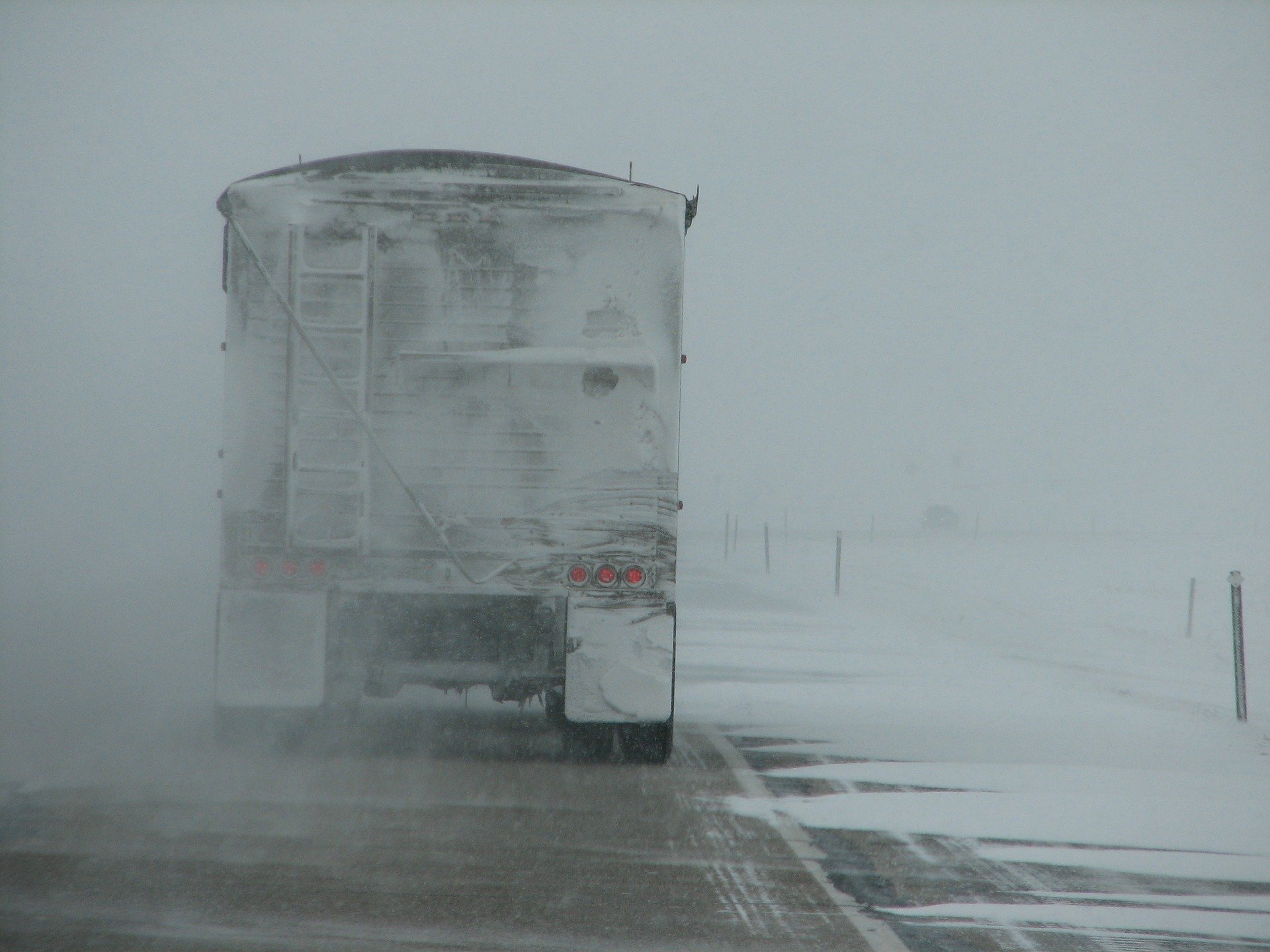One of the most significant benefits of being in the business of helping people manage their fleets is learning where the challenges are and focusing energy on finding solutions for them. Data plays a crucial role in effective fleet management. Not just having it but being able to quickly and accurately collect it and then easily use it for the company's benefit. Through 30 years of successfully consulting for mobile-reliant industries, adapting modules to service-specific industries, and growing services to fit the evolving needs of fleet managers the world over, we’ve hopefully learned a few things on how to be helpful to them: It’s all about the data at your fingertips in your Fleet Management Software.
Reza Tavassoli
Recent Posts
Fleet Commercial Vehicles : What's Causing All These Accidents?
Topics: maintenance management, maintenance software optimization, fleet maintenance, vehicle data, preventative maintenance, fleet management, driver behaviour, real-time data, trucking, preventive maintenance, safety
Vehicle Maintenance and Safety: A Cautionary Tale - Fleet Management
If you ever wondered how important road safety has become and why, you only need to spend a little time reading your local news for police reports. They can give you a lot of insights about what truck drivers face daily and how important properly maintained vehicles are to not only their health, but the health and safety of those who share the same roads. If you pay close attention, you will wonder when all these reports were written, because companies can’t possibly still be relying entirely on manual inspections and driver-initiated reporting. What about the technology: on-board computers, Vehicle Data Units, mobile telemetry systems, and integrated fleet management systems? How can so many companies have this technology, but still not use it?
Fueling the Engine of Safety with Proper Fleet Maintenance
“An average of over 300,000 accidents involving large trucks occur annually” according to the Federal Motor Carrier Safety Administration (FMSCA). Because of their tremendous size and weight, transport and tanker trucks cause more severe injuries when involved in accidents. With the increased risk these vehicles pose to other motorists, the entire trucking industry is tightly regulated by law at several governmental levels. These regulations concern issues ranging from vehicle visibility and signage requirements to minimal standards for licensing the drivers and, most importantly, clear rules regarding truck maintenance and vehicle safety standards.
Safety in Fleet Management—Keep On Trucking... Safely
Ambulance Chasers with a Conscience
Did you know that Texas and California lead the USA in the number of fatal truck accidents yearly? Unsurprisingly, they also have the most significant rural areas, and all their statistics indicate that is where most accidents occur. In Texas alone, more than 400 people are killed and 8,000 injured annually in trucking-related accidents. Law firms dominate the top SEO rankings with their statistics and advice for cutting back on the billions in losses incurred during injury lawsuits. And while some tug at the emotional or fear strings more than others, they are increasingly combining forces with vehicle manufacturers and fleet management leaders to offer preventive practices that keep their clients moving and growing. Almost unilaterally, you will see a similar statement following their terrifying statistics: “What makes these numbers tragic is that the majority of these accidents were avoidable.”
Out of Sight MUST Not Mean Out of Mind—AVL in Fleet Management
Asset tracking problems = lost revenue
As fleet operators, companies acquire various mobile assets for various reasons. For all the benefits those assets bring, their increased quantity means that fleet managers are also increasing the risk of loss through operator theft and/or misuse. According to automotivefleet.com, there’s an average of 2,248 vehicles stolen each day in the United States alone, and these numbers increase on holiday when the majority of vehicles are supposed to be out of service due to holidaying drivers. Fleets contend with many related asset-tracking problems regularly, which ends up all but stalling productivity.
Topics: fleet maintenance, vehicle data, fleet management, AVL, vehicle tracking, real-time data
They can sneak up on you: Keeping Track of Your Maintenance Costs
According to some recent fleet maintenance statistics on AutomotiveFleet.com, the repair cost (labor and parts) of running your ageing fleet increases annually by 5% to 7%, but when you look closer at the segment breakdowns, the numbers are much more dramatic. Looking at “Repair Spend by Odometer”, we see the cost rise almost 10 times once the vehicle hits over 90,000 km and “Repair Spend by Months in Service” shows a jump of nearly 8 times once we get past the 37-month mark. Furthermore, these statistics exclude regular tire and oil changes, rental of replacement equipment and emergency overtime costs, or accident expenses. If these jumps seem extreme to you, it’s because they are, but they are a manageable part of the cost of maintaining a fleet. Keeping your fleet assets (vehicles and other mobile-fueled equipment) and drivers safe, productive, and mobile is pivotal to reaching your organization’s sales and service goals. A great Fleet Management software will help you keep an educated eye on your maintenance costs, indicate when they begin to rise, and how to plan for the optimization of the fleet. So, what can you do to keep your fleet in optimal shape?
Topics: fleet fuel management, maintenance management, fleet maintenance, preventative maintenance, fleet management
We're Not Cave People - Automation in Fleet Maintenance
Are you still using manual entry and relying on paper agendas to remind you of important fleet management details, like Preventive Maintenance check-ups? Or are you having to look for information in so many different places you aren’t sure how they connect? Have you lost a few along the way? In today’s business settings, everyone has many more tasks to attend to, and some things will slip through the cracks when we don’t use some simple tools to help us along. For instance, advanced fleet maintenance software (e.g. SM2- Maintain) and GPS tracking data have replaced the manual and time-consuming processes traditionally associated with managing your fleet maintenance. Since most of the other areas of fleet management are automated under your Fleet Management System software (FMS), automation should also be part of your maintenance management program.
Topics: maintenance management, preventative maintenance, AVL, vehicle tracking
The business world was rocked when Stephen R. Covey, the author of the best-selling book “The 7 Habits of Highly Effective People: Powerful Lessons in Personal Change,” said, “Ineffective people live day after day with unused potential.” Industry leaders, managers, and entrepreneurs everywhere quickly realized he wasn’t only talking about people but also describing the primary factors limiting a company’s growth.
Topics: fleet fuel management, fleet maintenance, preventative maintenance, fleet management, driver behaviour, vehicle tracking, real-time data
Being a fleet manager has its unique challenges.
Topics: fleet fuel management, fleet maintenance, fleet management, driver behaviour, vehicle tracking
Mining Industry: Finding Gold in Your Fuel Management
Mining + Fleet Management Systems = Success
Mining is a global industry, and all over the world, mines experience the same challenges and use the same tools to run profitable operations. Almost all mining operations run 24/7 and 365 days a year. When equipment must constantly be running, failures, fuel management errors, and operator misbehavior can quickly add up to millions in losses. Because most of the operation depends on generators, fuel becomes a very expensive and crucial part of the operating equation. This is where a solid mining fleet management system can provide significant benefits. In addition to the vehicles, everything from the property lighting to the cafeteria and kitchen equipment, personnel housing and amenities, maintenance facilities, and most of the machinery operating outside and inside the plants depend on a continuously available fuel supply. Managing this supply accurately is where the big savings occur.
Topics: fuel management, fuel tank management, mining










